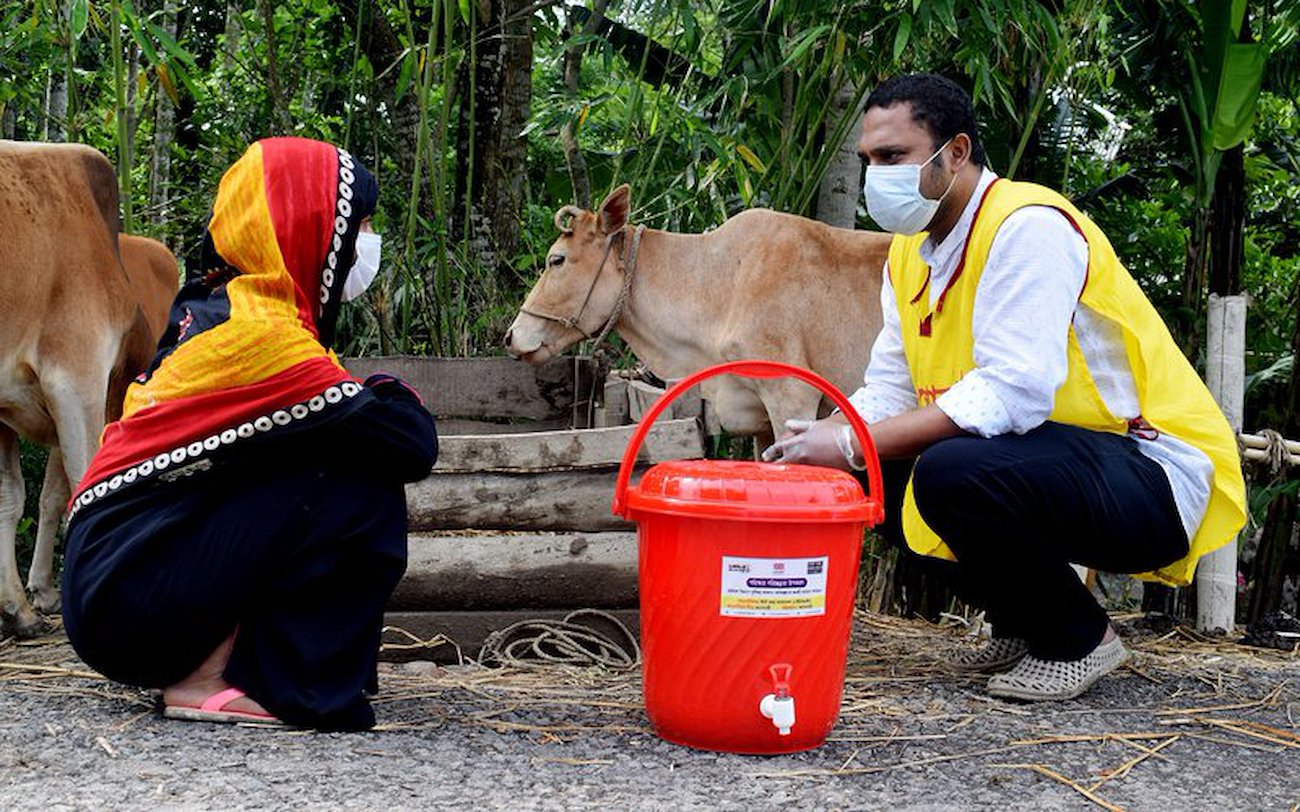
Humanitarian System Transformation through Local Humanitarian Leadership (HST-LHL)
Local and national humanitarian organizations are often the first to respond in emergencies, they also continue supporting recovery long after international groups leave.
By reinforcing their existing capacities, skills and leadership, we can uphold the rights of crisis-affected people in providing them with quality and timely humanitarian assistance. However, despite efforts to create a more equal and locally-led humanitarian system, international organizations still receive most resources and opportunities.
Oxfam Novib is longtime advocate of a locally-led humanitarian system, a central piece in our commitment to decolonize humanitarian work. Three key barriers continue to block meaningful transformation:
- Priorities for humanitarian aid at country-level are often discussed and decided upon by donors, INGOs and United Nations-agencies. This excludes local and national actors from participating, leading coordination, and decision-making processes.
- While risk is inherent to providing humanitarian assistance in complex environments, these are not always jointly understood and addressed with local actors. This puts them at a disadvantage, or even in danger.
- Despite having demonstrated their capacity to respond at scale and meet quality standards, the share of funding transferred to local and national actors, including those that are women- and/or refugee-led, remains extremely small.
Strategies & interventions
The program supports a shift towards a more equal, risk-informed and better funded locally led humanitarian system in seven countries, including countries affected by conflict or fragility. These are Colombia, Democratic Republic of Congo, Kenya, Indonesia, Myanmar, South Sudan, and Yemen. The program will contribute to improved representation by local actors in decision-making spaces at the global level, for example with donors and decision-makers in Geneva. Through research and learning at country-level, we will provide policy recommendations and proven solutions to transform the international humanitarian architecture.
Outcome 1: a more equitable and locally-led humanitarian system
- provide (financial) support to existing (sub-)national multi-stakeholder consultation forums
- invest in meaningful participation and leadership of local and national actors in internationally-dominated humanitarian coordination and decision-making processes at (inter)national levels
Outcome 2: a more risk-informed and safe humanitarian system
- jointly identify and prioritize capacity and risk challenges
- set-up Response and Capacity Innovation Labs to generate and adopt innovative solutions to address the identified challenges
- share lessons learned to ensure changes in policy and ways of working in the wider aid delivery chain.
Outcome 3: increased quality and quantity of humanitarian funding managed by local and national humanitarian actors
- pilot mechanisms to increase funding to local and national humanitarian actors through locally-led networked models
- document and evidence impact and reach of locally-led responses to increase trust and investments from donors.
Partners
In addition to in-country partners, this program brings together two external partners: ODI Global will bring methodological expertise to program learning, ensure evidence generation is jointly produced with local actors, and support the uptake of findings by (inter)national actors. In addition, the Response Innovation Lab, together with country teams and partner organisations, will scope country-specific risks and capacity-related challenges linked to increased Local Humanitarian Leadership and identify, design and disseminate solutions for wider learning in the humanitarian sector. Oxfam’s role focuses on facilitating and supporting research and innovation, enabling cross-country learning and documenting evidence to inform system change at national and global levels. In doing so, we leverage our decades-long, trusted relationships with local and national humanitarian actors, crisis-affected people, international policymakers and donors, including through our offices in 60+ countries.

 The program
The program
Humanitarian System Transformation through Local Humanitarian Leadership is a 3.5-years flagship program implemented in partnership with the Dutch Ministry of Foreign Affairs. It runs from April 2024 until October 2027, with a total budget of €16.8 million.
For more information
Elsa van Zoest
Local Humanitarian Leadership & Learning Advisor
elsa.vanzoest@oxfamnovib.nl




